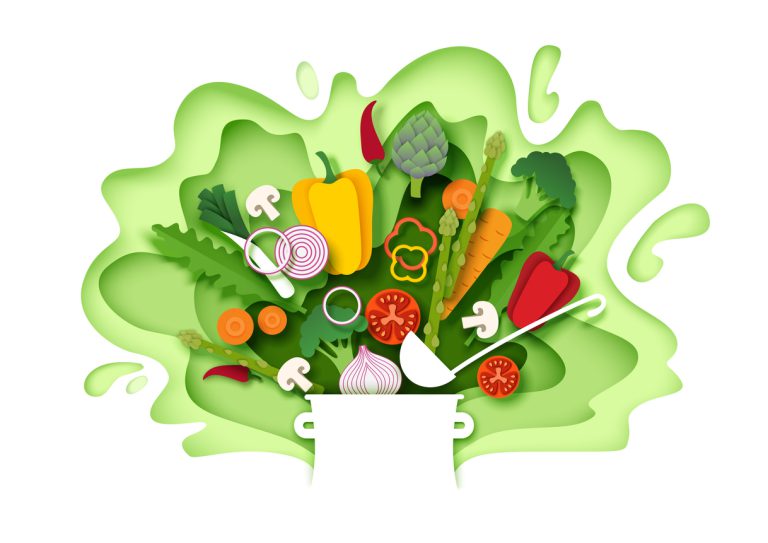Key conclusions of the advice
- A more plant-based diet aligns better with the dietary guidelines of the Health Council of the Netherlands than the current dietary pattern.
- Consumption of healthy (more) plant-based diets with whole grains, fruits, vegetables, nuts, and legumes reduces the risk of cardiovascular diseases, type 2 diabetes, and cancer. Eating less red and processed meat is also associated with a lower risk of diseases, leading to higher fibre intake and lower intake of saturated fat and possibly salt.
- For most Dutch citizens, it is possible to consume less animal products without nutrient deficiencies.
- Based on new calculations, the 2001 advice for higher protein intake for vegetarians is no longer necessary.
- Shifting to a diet with 60% plant-based and 40% animal protein is estimated to reduce the environmental impact of our food consumption by approximately 25%.
- Policy measures should make it easier for the entire population to consume more plant-based foods.
Lower environmental impact
Globally, the food system is estimated to be responsible for about 30% of total greenhouse gas emissions, 60% of total land biodiversity loss, and more than 50% of nitrogen emissions. To reduce the environmental impact of the food system and ensure sufficient food supply in the future, the food system must change. Animal-based foods contribute significantly to this environmental impact, and overconsumption also plays a role. Increased consumption of plant-based proteins is necessary to lower the environmental impact of the food system.
Recommendations, policies, and approach
The committee recommends a focus on policies that promote the transition to more plant-based proteins. Key focal points include specific groups, monitoring, and comprehensive nutritional education. The advice encourages scientific research on the bioavailability of nutrients (from plant sources), the health effects of ready-made meat, fish, and dairy substitutes, alternative (new) protein sources, environmental impact of different protein sources, environmental benefits of avoiding overconsumption, and (policy) interventions focused on the food environment and behavioural change. The shift towards more plant-based diets has already begun in the Netherlands in recent years. However, a faster transition is needed. The committee emphasizes that the policy should involve not only consumers but all players in the food chain, aiming for an environment where healthy and sustainable eating becomes the norm.
Protein transition committee and methodology
The advice was prepared by the temporary Protein Transition Committee of the Health Council of the Netherlands. The research focused on health effects, including risks of chronic diseases and nutrient provision. The committee used various sources of information to assess the consequences of the protein transition for health and sustainability. This included data on current intake, empirical research on the relationship between dietary patterns and health, and modelling research. Based on this information, conclusions were drawn regarding the expected impact of the protein transition on the health of the Dutch population and the environment.
Advice and background documents
A executive summary of ‘A Healthy Protein Transition’ advice can be downloaded here.
The following background documents and scientific reports were used in preparing the advice of which several are available in English: Advies Gezonde eiwittransitie | Advies | Gezondheidsraad
Sources:
Advies Gezonde eiwittransitie | Advies | Gezondheidsraad


